In today’s fast-paced work environments, ensuring the health and safety of employees is paramount. Among the various aspects of workplace safety, hearing health often takes a back seat. However, with the rise of comprehensive hearing conservation services, such as those offered by mobile van providers, safeguarding employees’ well-being against noise-induced hearing loss has become more accessible and efficient.
Mobile van hearing conservation services represent a tried-and-true approach to addressing workplace hearing health. Unlike traditional methods that require employees to visit off-site testing facilities, mobile vans bring the testing directly to the workplace. This not only saves valuable time but also minimizes disruptions to workflow, making it more convenient for employees to undergo necessary hearing tests without sacrificing productivity.
One of the key advantages of mobile van services lies in the comprehensive nature of the testing offered. Certified Occupational Hearing Conservationists (COHCs), often holding certification from the Council for Accreditation in Occupational Hearing Conservation (CAOHC), operate these vans and administer a full spectrum of tests, including pure-tone audiometry and OSHA-compliant evaluations. This ensures the accuracy and reliability of the results, essential for identifying potential hearing health risks and implementing appropriate control measures.
Moreover, mobile van services excel in tailoring testing process to suit specific work environments. By conducting on-site assessments, technicians can gain insights into the unique noise exposure levels and hearing health challenges faced by employees in various job roles. This allows for personalized recommendations and interventions, contributing to a more effective hearing conservation program tailored to the organization’s needs.
Immediate feedback and counseling are another significant advantage offered by mobile van services. Following the completion of tests, employees receive instant results and personalized counseling from trained professionals. This not only raises awareness of individual hearing health status but also empowers employees to take proactive measures to protect their hearing, fostering a culture of safety within the organization.
Perhaps one of the most compelling reasons to choose mobile van services over alternative methods, such as tablet audiometry, is the presence of CAOHC-certified technicians. These professionals undergo rigorous training and adhere to industry standards, ensuring the highest level of service delivery and compliance with regulatory requirements. Their expertise and professionalism instill confidence in the testing process, reassuring employees and employers alike of the reliability of the results.
On the other hand, tablet audiometry typically involves non-certified users administering hearing tests using portable tablets or similar devices. While these systems may offer convenience and flexibility, they often lack the professional expertise and rigor associated with traditional testing methods conducted by certified professionals.
The difference in expertise between CAOHC-certified technicians and non-certified users is significant in several key areas:
1. Accuracy and Reliability:
CAOHC-certified technicians are trained to adhere to standardized testing protocols and ensure the accuracy and reliability of test results. Their proficiency in conducting tests under controlled conditions minimizes the risk of errors and ensures consistent outcomes.
2. Compliance and Quality Assurance:
Certified technicians are well-versed in regulatory requirements and best practices for hearing conservation. They ensure that testing procedures comply with OSHA regulations and industry standards, providing assurance that the testing process is conducted with integrity and adherence to quality standards.
3. Professional Counseling and Guidance:
CAOHC-certified technicians are trained not only in administering tests but also in providing counseling and guidance to individuals regarding their hearing health. They can effectively communicate test results, discuss potential risks of noise exposure, and recommend appropriate measures to protect hearing.
4. Customization and Individualized Care:
Certified technicians have the expertise to tailor testing process and recommendations to suit the specific needs of each individual and workplace. They consider factors such as job roles, noise exposure levels, and individual risk factors to provide personalized care and guidance.
Overall, the presence of CAOHC-certified technicians in mobile van services ensures a higher level of professionalism, accuracy, and quality in the testing process compared to tablet audiometry conducted by non-certified users. Employers can have confidence in the reliability of test results and the effectiveness of interventions recommended by certified professionals, ultimately contributing to a safer and healthier work environment for employees.
In conclusion, mobile van hearing conservation services offer a multifaceted approach to promoting workplace safety and protecting employees’ hearing health. By combining accessibility, comprehensive testing, personalized solutions, immediate feedback, and professional expertise, these services represent a valuable investment in safeguarding the well-being of employees and fostering a culture of safety within the organization.
Ready to prioritize your employees’ hearing health? Explore Workplace INTEGRA’s mobile van services and experience the benefits of partnering with CAOHC-certified professionals. Contact us today to schedule a consultation and take proactive steps toward workplace safety.
Interested in more information?
Who is Supervising Your Hearing Conservation Program?
In today’s workplace, hearing conservation programs are essential for protecting employees from noise-induced hearing loss. While many companies utilize electronic medical record (EMR) software to manage the record-keeping aspects of these programs, it is crucial to understand that software alone cannot replace the expertise of a qualified professional supervisor. According to the Occupational Safety and…
Continue Reading Who is Supervising Your Hearing Conservation Program?
October is National Protect Your Hearing Month
Protect Your Hearing: The Importance of Proper Fit Testing October is National Protect Your Hearing Month, a time dedicated to raising awareness about the importance of protecting our hearing from noise-induced damage. Noise-induced hearing loss is preventable, yet it affects millions of people worldwide. This month, we emphasize the critical role of hearing protection devices…
Continue Reading October is National Protect Your Hearing Month
Protecting Temporary Workers’ Hearing: A Shared Responsibility
As businesses increasingly rely on temporary staffing solutions, ensuring the safety and well-being of these workers becomes a critical concern. One area that demands particular attention is the implementation of robust hearing conservation programs (HCPs) in workplaces with excessive noise exposure. Both host employers and staffing agencies play a crucial role in safeguarding temporary workers’…
Continue Reading Protecting Temporary Workers’ Hearing: A Shared Responsibility
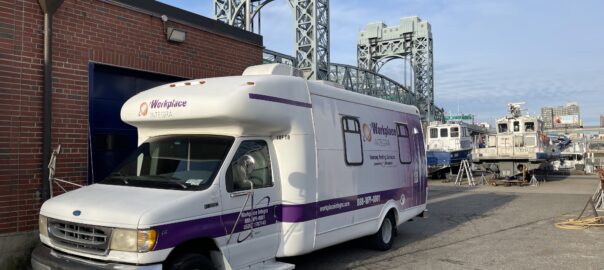
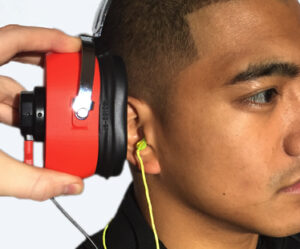
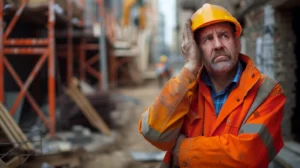
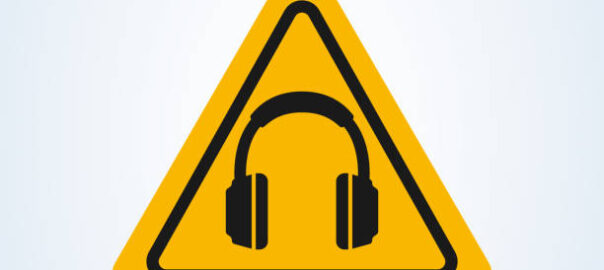
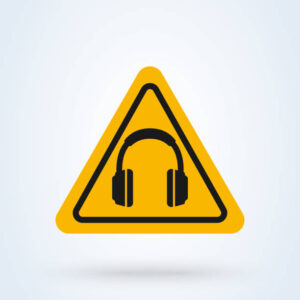


![th[10]](https://workplaceblog.wpengine.com/wp-content/uploads/2016/08/th10.jpg)
